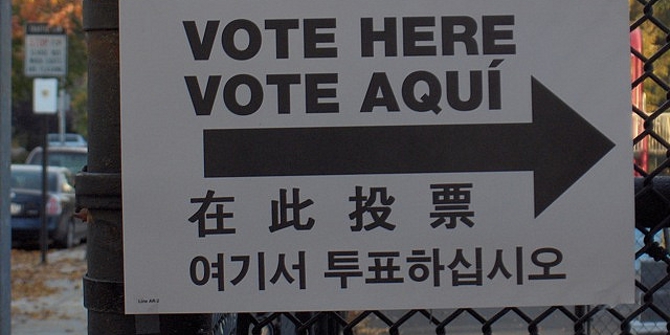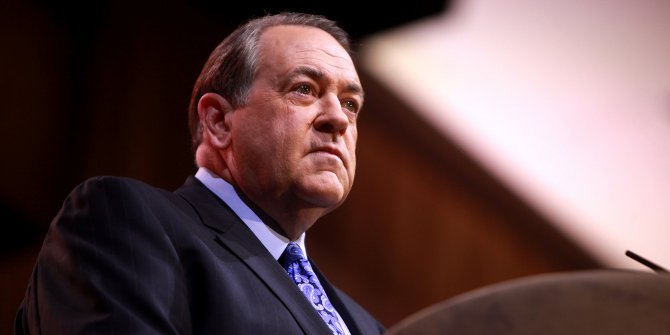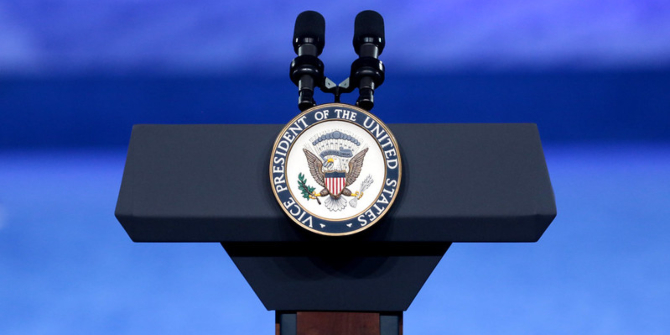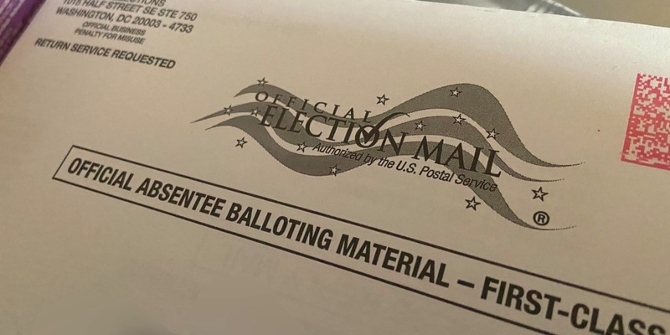 Last night, President Joe Biden delivered his second State of the Union address to a joint session of the US Congress. The speech, Thomas Gift argues, made the case that Biden’s list of accomplishments so far is more impressive than he is often given credit for. It also highlighted a “blue-collar blueprint for America” that could resonate with parts of the country that often feel forgotten. Now, Gift says, all eyes are on whether Joe Biden will run for a second term in 2024.
Last night, President Joe Biden delivered his second State of the Union address to a joint session of the US Congress. The speech, Thomas Gift argues, made the case that Biden’s list of accomplishments so far is more impressive than he is often given credit for. It also highlighted a “blue-collar blueprint for America” that could resonate with parts of the country that often feel forgotten. Now, Gift says, all eyes are on whether Joe Biden will run for a second term in 2024.
State of the Union addresses are pointless, we’re often told. At best, they give the president a short-lived bump in the polls. At worst, they’re an anachronism, an over-wrought exercise in political exhibitionism. And yet, last night’s speech somehow seemed more anticipated than usual.
Perhaps it was the timing, against the backdrop of heightened national precarity. Growing stakes in a still-raging war in Europe. A rocky domestic economic outlook. China flexing its muscles in the skies overhead. But more likely, it distilled down to simple political curiosity. Will he or won’t he run in 2024?
President Biden didn’t answer that question directly, of course. But predictably, he did cheerlead the main accomplishments of his term so far. And the list—when recounted all together—is perhaps more impressive than he’s often given credit for (or that the White House itself has been able to communicate to date).
At home: A $1.9 trillion covid stimulus. A $1 trillion infrastructure bill. Bipartisan legislation on guns. Student debt relief. Signing of the CHIPS Act. And most of all, strikingly good job figures, which despite stubborn inflation, has reduced the country’s unemployment to 3.4 percent, its lowest levels since 1969.
Abroad: A unified Western front against Russia, which has breathed new life into a suddenly relevant and muscular NATO alliance. A tough-on-China approach that, notwithstanding criticism over the recent Chinese spy balloon, has largely gained support from Republicans and Democrats alike.
All of that’s nothing to scoff at, as Biden himself tried to make clear. “As we gather here tonight, we are writing the next chapter in the great American story, a story of progress and resilience,” he declared.
Yet most voters aren’t convinced. Biden’s approval ratings remain stuck in the low 40s. A new Washington Post/ABC poll found that more than 60 percent of Americans, including nearly a quarter of Democrats, think that Biden hasn’t achieved much in office.
And so, in an effort to persuade skeptics, Biden’s speech didn’t just focus on enumerating key legislative wins, or recounting statistics about job growth. It also concentrated on finding a way, in a brisk 70 minutes, to resonate with emblematic parts of America that are often forgotten.
Biden’s blue-collar blueprint for America
Biden was perhaps at his best when talking earnestly about his commitment to fixing a hollowing out of America. Under his watch, Biden said, “[P]ride is coming back, because of the choices we made in the last two years. This is a blue-collar blueprint to rebuild America and make a real difference in your lives.”
Perhaps the tensest moment of the night came, unsurprisingly, on a topic that is likely to trigger the most legislative friction in the weeks ahead — the debt ceiling — where Biden accused Republicans of trying to “sunset” entitlement programs like Social Security and Medicare.
“Liar,” yelled hard-right Republican firebrand Marjorie Taylor Greene. It was a moment that almost surely played to the political advantage of Biden.
Biden spent considerable time in his address pointing to anecdotes of success stories across America that have benefited from his agenda. But what he didn’t do was talk much about what might most define his legacy going forward: implementation.
Technocratic details about rolling out bills already passed aren’t the stuff of must-see TV. But in large part, they’re the kind of workmanlike tasks that could determine successes or failures over the next two years.
With Biden’s spending sprees, federal debt has swelled to $31 trillion, six times larger than two decades ago. The era of big government is back. Many voters, including both progressive Democrats and populist Republicans, don’t seem much concerned. But they still need to see that public expenditures are tangibly working for them on a broader scale.
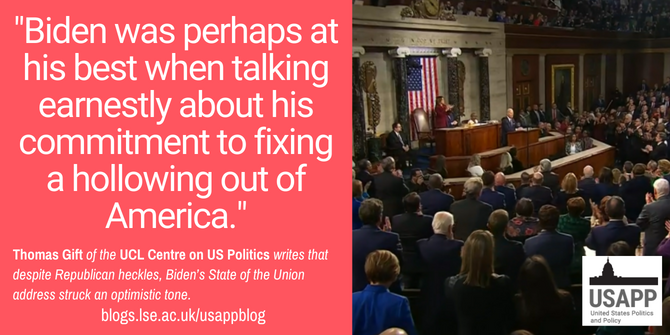
Credit: C-SPAN
Guarded optimism in the face of an obstructionist GOP
Looking ahead, Biden struck an optimistic tone about working across the partisan aisle on areas of mutual agreement. “[W]e’re often told that Democrats and Republicans can’t work together. But over these past two years, we proved the cynics and the naysayers wrong,” he insisted.
Yet Biden knows better than anyone that big-ticket items are no longer in the cards. Nor are any grand bargains on policies like immigration or entitlement reform. The next two years will be consumed by playing defense against an obstructionist, GOP-controlled House determined to block and humiliate the White House.
Near the closing of his address, Biden again emphasized his recurring desire to bring the country together around a common aspiration of respect for democracy. “Democracy must not be a partisan issue. It must be an American issue,” he proclaimed.
Yet for all the talk about civic healing, the president hasn’t come close to fulfilling his biggest promise as a candidate in 2020. If anything, partisan polarization has only escalated under Biden. Trumpism hasn’t disappeared, and while some say that Trump’s grip on the party has waned, reports of his death may be greatly exaggerated.
Setting the stage for a second act?
Biden didn’t make any headlines last night about his future plans. But in touting his accomplishments and putting on a game face, he also didn’t quiet speculation about a re-election bid. While it’s possible to read too much into his equivocating, the odds seem better than ever that he’s prepping for a second act.
If anything, low expectations could prove a blessing for Biden as he tacks between being in or out in 2024. An opposition House and an onslaught of investigations wouldn’t seem to bode well for an 81-year-old president dogged by questions about his mental acuity. Yet now may be the perfect chance for Biden to be Biden, the kind of pragmatic leader that he campaigned to be.
“As I stand here tonight, I have never been more optimistic about the future of America. We just have to remember who we are,” Biden said. The question is whether Biden will remember who he is–and whether he will be the Democrat who looks to lead the country toward that future.
- Please read our comments policy before commenting.
- Note: This article gives the views of the author, and not the position of USAPP – American Politics and Policy, nor the London School of Economics.
- Shortened URL for this post: http://bit.ly/3lk0nsG


